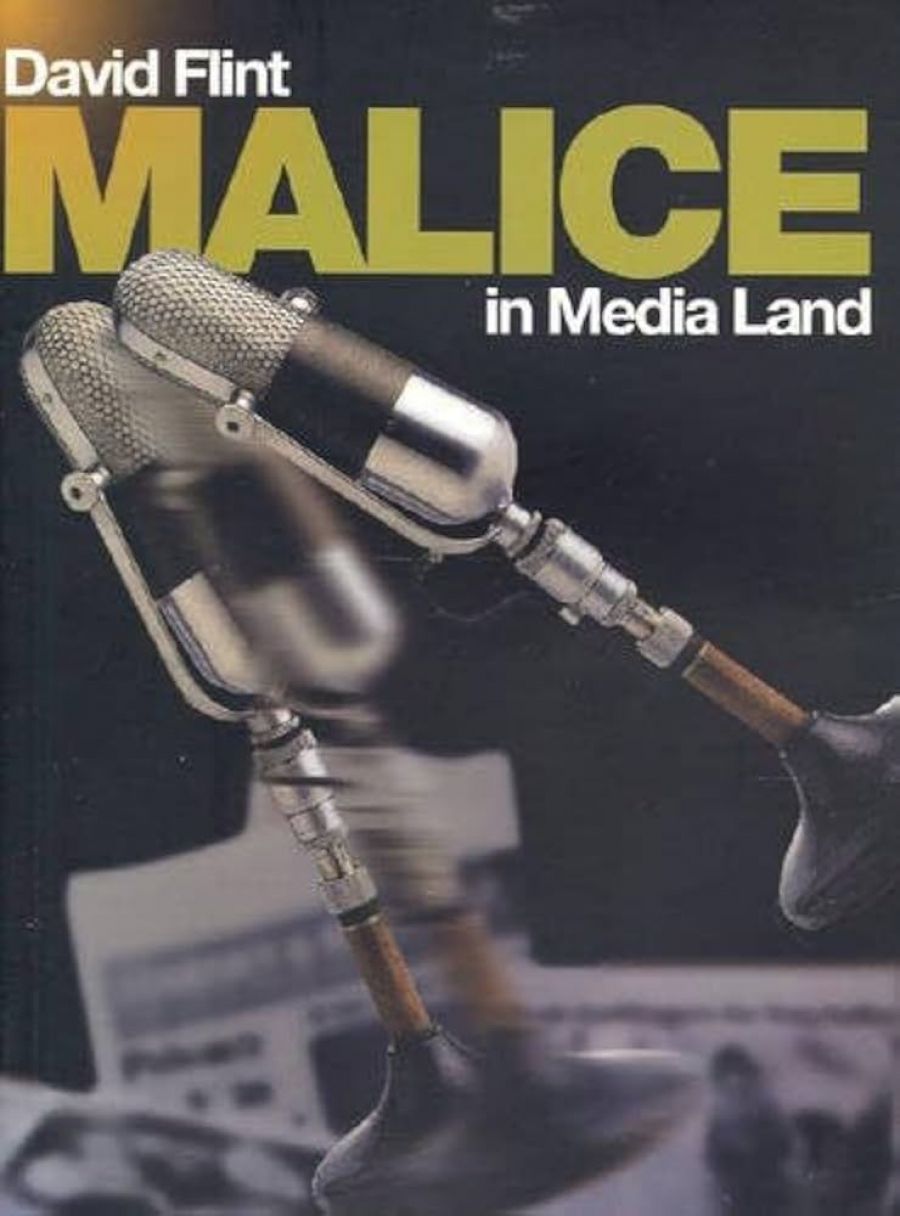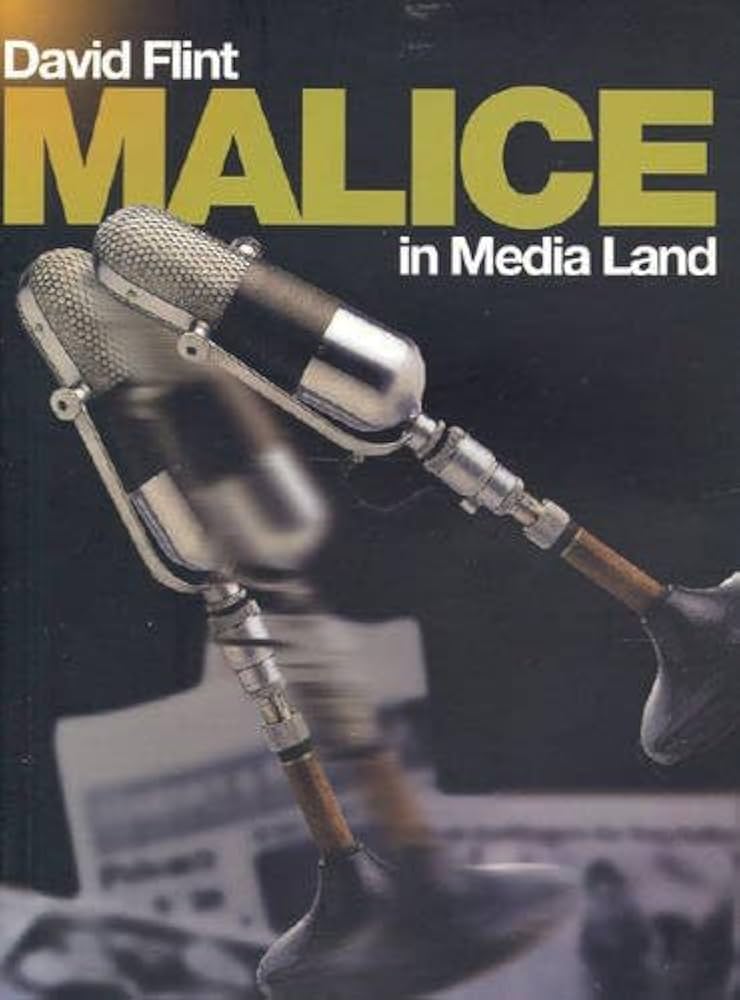
- Free Article: No
- Contents Category: Society
- Review Article: Yes
- Article Title: Twilight of the chairman
- Online Only: No
- Custom Highlight Text:
Disclosure: I am a humanities academic. It is, therefore, entirely inappropriate for me to be reviewing this book. After all, the author maintains that most academics in humanities departments are post-modernists or post-structuralists, prescribing as dogma ‘the bizarre and outdated theories of a handful of French philosophes’; worse, much of academic thought in the last two centuries has been related to the ‘partial removal or even the overthrow of capitalism, of the free market and of the private enterprise system’.
- Book 1 Title: Malice in Media Land
- Book 1 Biblio: Freedom Publishing, $24.95 pb, 269 pp
- Book 1 Cover Small (400 x 600):

- Book 1 Cover (800 x 1200):

When I can spare a moment from plotting the overthrow of capitalism, I am working on a history of Australian commercial radio. But in the last year, more and more of this precious time has been consumed by the contemporary spectacle of the regulator, David Flint, and the regulated, Alan Jones, John Laws and Derryn Hinch. When they haven’t been throwing bombs or found themselves at the centre of ‘feeding frenzies’ (to use Flint’s term), they have been writing books and attracting biographies.
So what is this latest book of Flint’s, and how does it differ from his The Twilight of the Élites (2003)? It is with a weary sigh that I have to concede I don’t really know. Malice in Media Land is neither a memoir of the former chair of the Australian Press Council and Australian Broadcasting Authority (ABA), nor a measured commentary on the state of the Australian media or a considered treatise urging regulatory reform. Malice traverses much the same territory as Twilight – we hear the same conservative gripe about the left-wing bias of the ‘élite’ Australian media, including the broadsheets and the ABC, and again have Professor John Henningham’s 1996 survey of journalists produced as evidence. Academics such as Henningham and Peter Putnis are fine when they agree with you, as are columnists for the ‘élite’ press such as Gerard Henderson, Paul Sheehan and Greg Sheridan.
Flint early and clearly enunciates his political views – on republicanism, Christianity, border protection and the ‘so called “children overboard” affair’ – and throughout the book he argues that the élite media and the press gallery run crusades and allow comment to spill over into ‘news’, and that proprietors now hardly ever determine their outlets’ ideological opinions. It is fair enough that these views are in sharp contrast to those of the left-liberal non-fiction writers whom he dismisses, for Malice is yet another missive in the culture wars and will be regarded as such by future historians. (Still, I can’t help but wish that Flint would acknowledge that the reason why universities, ‘once communities of scholars, now have officially mandated missions, visions and policies’ is related in large part to the Howard government’s education policies.) Flint writes admiringly about some of his subjects: Tony Abbott, who wrote the foreword to Twilight and launched Malice, is lauded as ‘young, athletic, an outstanding sportsman, rugged, intelligent’.
Malice is remarkable, principally, for its shallowness and its lack of intellectual rigour. Flint condemns the media for allowing ‘comment’ to intrude by reporting that Mark Latham won the 2004 election debate, even though it would have been remiss for any media outlet not to report the winner of a head-to-head contest, particularly when there was a clear consensus. Even John Howard’s friend Grahame Morris, speaking on Sky News Australia immediately after the debate, conceded that the Opposition leader had won on points. Flint claims that, if the ethics and professional standards of today’s media had been current during World War II, all military theatres would have been presented as potential disasters. But surely Germany’s invasion of Poland in 1939 cannot be compared with Saddam Hussein’s more insular régime, however heinous, in 2003?
Some of the most extraordinary claims in Malice concern the media, which Flint helped to regulate for more than fifteen years. He derides Media Watch for ‘attacking John Laws for publishing a book, The Other Story [sic]’ and supports Morris’s contention that the presenter, David Marr, should have ‘disclosed’ that he also had a book competing for shelf space. Flint seems completely oblivious to the fact that Media Watch was pointing out that Laws’s There’s Always More to the Story (2004) bore a direct link to the ‘Whole Story’ segment on 2UE that culminated in the first ‘cash for comment’ inquiry. Flint insists that there has been an increase in the overall diversity of the Australian media due to new technologies such as pay television. However, less than a quarter of Australian households have pay television, and the only Australian news channel, Sky, relies on Channels Seven and Nine for much of its reporting, and News Ltd journalists for panel shows during election campaigns. Oddly, when contending that legislation enabling a licensee to have two radio stations in the one market allows it to cater to minority interests through the second station, Flint cites as an example 2GB’s sister station 2CH, with its safe and mainstream ‘easy listening’ music format.
In Flint, 2GB and its stable, including Alan Jones, have a great fan. If Flint believes that tabloid newspapers provide an antidote to the dominance of the élites over the media, he is even more enthusiastic about commercial talk-back radio. He suggests that ‘the people’ – for whom this book purports to speak – found in talk back ‘a place to express their views, a place where they would be listened to without being ridiculed and vilified’. Unsurprisingly, however, talk-back radio is not subjected to the same scrutiny as is the élite media. Flint (who presumably sees himself as the victim of a feeding frenzy following the release of his correspondence with Jones) condemns the media’s pursuit of Peter Hollingworth in 2001–02. In recounting his conversations with business-people who mistakenly thought that Hollingworth was accused of paedophilia to support his contention that people only glance at daily newspapers or the evening news, the author fails to consider the role frequently played by talk-back radio in forming superficial impressions. And how often has talk-back radio itself initiated a feeding frenzy? Flint prefers to laud radio for setting the ‘news’ agenda, and suggests that this is an achievement of the Howard era. Invariably ahistorical, Malice is completely oblivious to the way in which talk-back radio assumed this role in the 1970s.
One of Flint’s favourite talk-back hosts is 2GB’s midnight-to-dawn host Jim Ball, quoted as a source for a tale about religious vilification and described as a ‘well prepared presenter’ with views often consistent with the majority. This is the same broadcaster who referred to some Muslims as ‘the raw sewerage of humanity’ and inspired some Sydney Muslims to encourage advertisers to boycott his program. I can understand Ball recommending Twilight on his website, as he does, but for a man of Flint’s stature to return the favour is quite reprehensible. Flint should not be able to claim ignorance of Ball’s more extreme views, for in 2002 the Sydney Morning Herald reported that the Muslims’ complaint about Ball might be referred to the regulator over which Flint then presided.
For all its faults – and they are many – Malice contains some interesting reflections on the problem of defamation law stifling free speech, the financial pressures facing community radio and the rise of the columnist as celebrity. Flint has not been well served by his publisher. Numerous observations are repeated throughout the book, often in a slipshod fashion. A BBC news editor’s wartime reprimand to staff for submitting poor copy appears thrice, in two different forms: ‘Would you risk your life to listen to this?’ and ‘Would you risk your life listening to this?’. Whole phrases are repeated, sometimes on the same page, and Flint twice lauds the former Herald Sun editor Piers Akerman for exposing the financial mis-management of the Kirner government. Flint sometimes refers to Akerman as Ackerman, Allan Fels as Alan, and the Australian Bankers’ Association as the Australian Banking Association, while mistakenly calling his former colleague Ian Robertson ‘Robinson’ and journalist Fred Brenchley ‘Benchley’. Many individuals mentioned, in some cases enthusiastically, including Jim Ball and Sam Chisholm, do not feature in the index; the BBC, which appears throughout the book, scores only one index entry, and most other media outlets are not indexed at all. There is an excessive use of upper case, and inconsistencies are rife. Freedom Publishing might have been better off employing the services of a competent editor, proof-reader, and indexer than producing a glossy newsletter promoting Malice (a newsletter which, incidentally, incorrectly cites the ISBN and the number of pages).
This is opportunistic publishing at its worst. Australian conservatives deserve better.


Comments powered by CComment